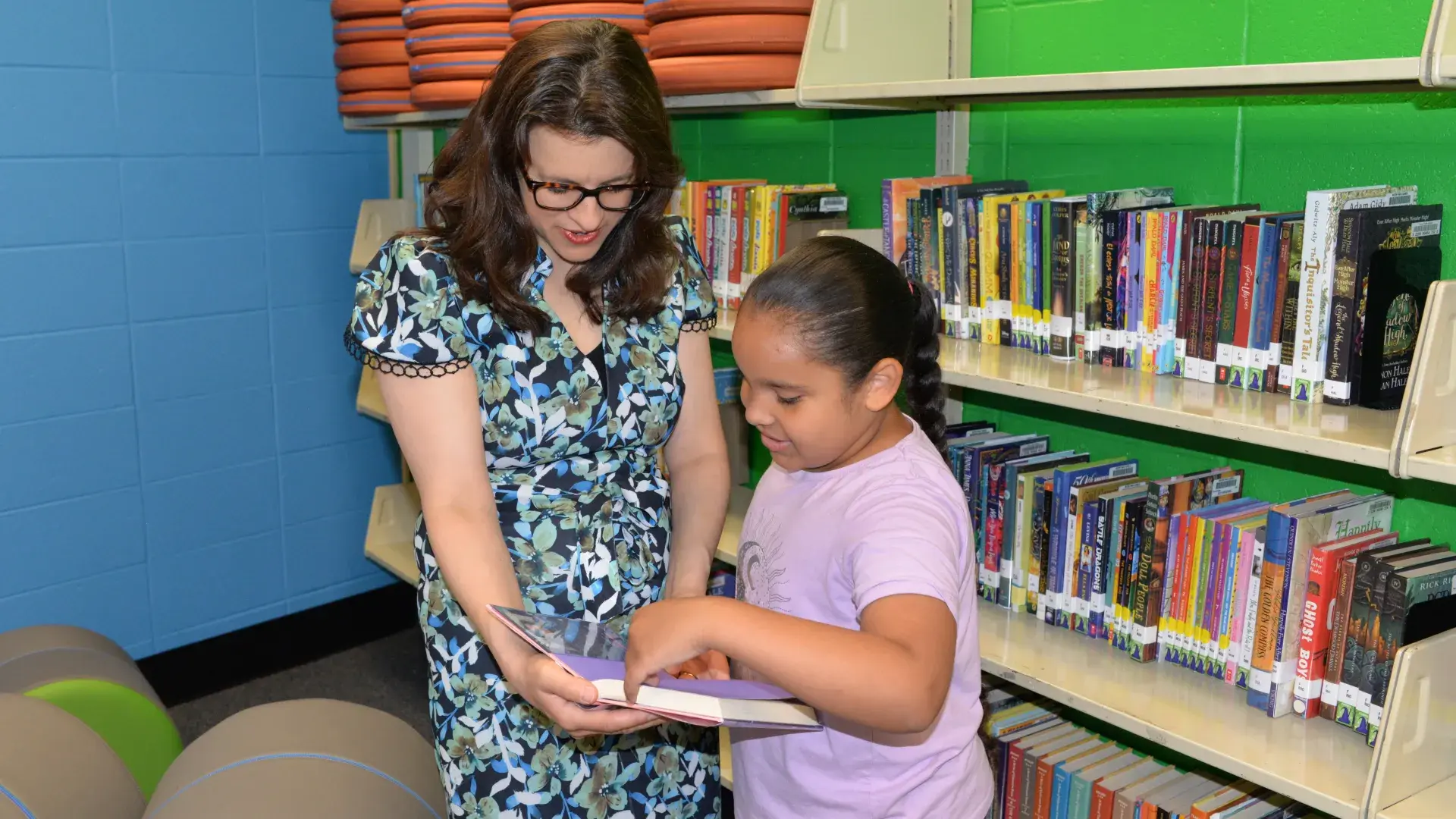
Researcher Dr. Joanna Christodoulou, director of the Brain, Education, and Mind (BEAM) Lab, and her team recently surpassed the 500-student mark in those who’ve been served by her lab’s summer program partnership with Charlestown elementary schools. Officially named the Summer Program in Literacy and Scholarship (SPLASH), the initiative is now in its seventh year. In this month's IHP Interview, Chief Communications Officer Sean Hennessey spoke with the professor of communication sciences and disorders about the program’s growth, its corporate backing, and the effect on the kindergarten through 6th grade students who’ve been helped.
What is the “Summer Slump?”
Summer Slump refers to the idea that academic scores decline during summer vacation. So, as summer vacation begins, a student’s performance level reflects the academic year of learning progress. During the summer, the landscape of literacy activities, experiences, and resources can shift dramatically. By the end of the summer, reading scores tend to decrease for most students. Reading is experience-dependent in that readers improve with dedicated opportunities to participate in literacy-related activities. The assumption is that scores decrease during the summer due to a downward shift for reading activities relative to the school year. On the one hand, this fluctuation means that school boosts academic skills, as we would expect. On the other hand, we are learning that some students are more vulnerable to score declines during summer breaks, and that we can use this time to foster reading progress and enjoyment.
Can you explain how the new research into this area has turned the old research on its head?
For decades, there was an assumption that summer slump impacted students from lower socio-economic status (SES) backgrounds more than their peers. The reasoning behind this differential effect was that fewer literacy experiences and resources would be available during school vacation in lower SES settings while higher SES peers would maintain or boost their scores with enriching literacy contexts.
Recent research using large scale datasets (such as NWEA) with students across the US have shifted the narrative about summer outcomes. First, most students (62-73%) experience a drop in reading (and math) scores over the summer, regardless of SES. Second, the same students tend to accrue lags during each summer. The open questions now are: what student characteristics may disproportionately exacerbate versus minimize summer score decline? Does having a reading disability impact summer reading outcomes? What role do summer activities play in promoting summer reading progress? How can we optimize access to impactful, fun, and affordable summer reading experiences and materials?
Tell us about the Summer Program in Literacy and Scholarship (SPLASH).
Our partner schools have strong programming in place to reach their students, and we are grateful partners to build on this foundation. We offer consultation, materials, and expert staff for the academic programming during the summer. Our collaboration addresses the what, when, how, and why of literacy instruction. We offer guidance on selecting summer literacy programs, review of scheduling and group settings to implement reading instruction, training for school staff on reading programs, acquisition of reading materials and programs, and translation of research for practice. We also collaborate with the Communication Sciences and Disorders (CSD) Dept. at IHP to host at the school sites IHP student clinicians training to be speech-language pathologists (SLPs), where they deliver small group and 1:1 instruction for summer school attendees under the supervision of our fabulous SLP supervisors. This is all provided at no cost to the school or families. We are grateful to RSM, a neighborhood partner that has supported SPLASH with a three-year grant to expand and amplify the program. SPLASH attendees get enhanced and more individualized instruction, SPLASH school staff get more support and team members, IHP student clinicians gain invaluable school-based training, my lab has the opportunity to study how to counter summer slide, and overall our community benefits from these partnerships with our neighborhood schools and families.
Congratulations on surpassing 500 students in the program’s seven years. Tell us about the growth and how the national accounting firm RSM played a role.
Before RSM’s generous funding support, we were reaching about 50 students each summer. Now, we have tripled that number to about 150 students each summer who are involved in SPLASH. The RSM funding enabled us to expand our program with more grades included and shorter waitlists at Harvard-Kent Elementary School as well as add another Charlestown elementary school, Warren-Prescott. It's an incredible neighborhood partnership between RSM, my lab (BEAM), the IHP, and these schools, which also showcases how philanthropy, public schools, research, and clinical training programs can impact student outcomes.
What’s been the impact and what are the hopes for the future?
Our aim is for summer school students to start their new school year feeling more capable and intact as readers so they can pursue their interests and learn more easily. I’d like to emphasize how important it is to consider how children read, but also how they feel about reading, how much they enjoy it, and how much they get out of it. One child started the program crinkling up their materials in frustration, and now seeks out even more challenging work because the infrastructure to succeed is available from their teaching team. We hope to amplify and extend stories like this one, because they capture the actualization of reading potential in striving learners.
Do you have a story the Office of Strategic Communications should know about? If so, let us know.
